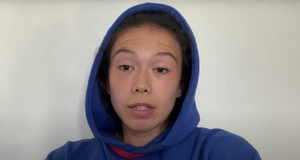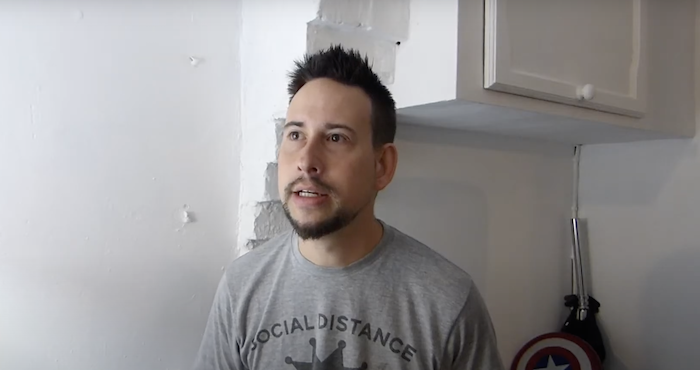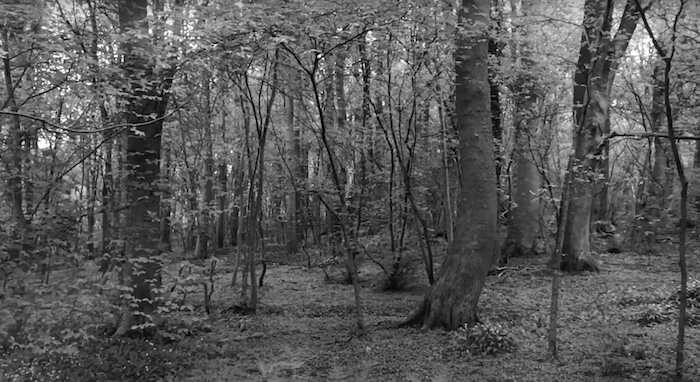Guest Blog: Rohan Candappa On The Lockdown Theatre Company

Curving The Run
A new theatre company has been founded by Rohan Candappa to support, nurture and pay actors left struggling when the theatres closed. The ongoing series of 20 episodes, some of which are already available online, cover a huge range of topics, working towards a finale this September with 17-minute monologue London Calling, drawing parallels between Coronavirus and the Blitz.
It all started with a Facebook post on 18 March. A week later, we'd shot our first monologue and it was up on a newly created YouTube channel. In the initial post, I'd said I'd make a film a week for ten weeks. And pay the actors for their work. Making sure actors got paid was important to me at a time when theatres were closing, and the side jobs many of them did to help pay the bills were disappearing too. Committing to do a film a week was, in retrospect, stupid. But I'd said it, so I had to do it.
A consequence of the workload is that I had to find a different way of working. I'd have to move fast. And also keep moving. You couldn't agonise too long about one script, or one film, because the next week a new one was due.
Compounding the difficulties was that this was a period of total lockdown. In London, we were allowed out once a day to get some exercise. There was no possibility of working with an actor in person. And often the actors were people I'd never even met before. Everything from first contact to finished film was done via screens or phones.
The other problem was that I didn't have ten scripts. And when the project grew to another ten films, that meant I'd have to write even more. So I did. Writing so much, so fast became a challenge, but also a liberation. When you're moving that fast you have to trust your judgement. And you have to make decisions quickly. It also becomes a bit cartoon-like - you've run off the edge of a cliff, and you'll get away with it as long as you don't look down.
Often the scripts were developed out of a phone conversation. I asked one actor what he'd been doing while stuck at home, and he said he'd dug out a Simpsons jigsaw puzzle he'd never done. That became the central theme of a script. Another actor talked about the fact that she was pregnant, and when you're pregnant as an actor no one even sees you. She also talked about her ethnicity. Out of this conversation I could see the chance to explore the concept of invisibility. So many of the scripts were a collaboration right from the start.

The Puzzle
Another aspect of this new way of working is that if you don't even have a script, how do you cast someone? The truth is, even after making 20 films, I'm not sure I have a coherent answer. The closest I can get to one is that I'd see some small moment in an actor's online showreel, have a conversation with them and get a sense of their energy, and then think I'd like to work with them. Frankly, it wasn't an exact science. And I guess this is another example of how, to hit the output I wanted, I had to make decisions quickly.
Rehearsing via screens is a different discipline too. If you're in a room with someone, how you communicate with them includes a dance of nuance and subtlety. Screens deaden that, so you have to tread more lightly. And it makes sense to not be dogmatic about what you want, instead be open to the possibility of what might happen if you truly do collaborate.
Then, there was a sense of responsibility about writing a script like London Calling. I think that's because writing something that draws parallels between the London Blitz of 1940, and the Covid crisis it was living through in 2020, means you're dealing with a lot of death. Deaths started every news bulletin while I was writing the script; they were here and now and frighteningly real. So if I was going to do this, I wanted to do it well. And to do it with a sense of respect for the way too many people who were losing their lives.
Also, the script, the film, was about London. The city I was born into as a second generation immigrant. The city, in all its flawed magnificence, that has made me who I am. I wanted to say what the city would say if it had the chance to speak. So that if, in the months and years to come, I met the city as I walked along the South Bank, it would give me that small, knowing smile it sometimes offers you, and say "You did good". So that was a responsibility too.
Finally, there was one last person to whom I felt I had to do justice. In the film there is a song, set to music, and beautifully sung, by Guy Hughes. I'd found the lyrics in a scrapbook made at the time of the Blitz. The words were written by a man called Ronald Fuller, who had volunteered as an Air Raid Precaution warden to help protect the city of London. One of his tasks, after an air raid, was to visit the bomb sites and recover the bodies. And that's what he's written about. It's a bleak, powerful piece of writing shot through with a dark humour that is sometimes the only way to get through the most troubling of times.

So that's a lot of responsibility to feel weighing down on your shoulders when you sit down to write. But I was also angry. And to quote John Lydon, once lead singer of The Sex Pistols, "Anger is an energy". The anger, just to be crystal clear, stemmed from how badly the British Government were handling the pandemic. And the consequences of their failings.
It also felt important to try and create something that was an immediate response to the situation, whilst we were still in the middle of it all. But I wanted it to be an immediate response that went beyond the memes, and the howls, that at times overwhelm our digital consciousness.
The starting point of it all was an item I read on the BBC News website that highlighted the fact that the number of deaths in London from Covid in the previous four weeks had exceeded the highest number of deaths during four weeks of the Blitz.
That stopped me. That made me think. That made me want to do something. And the thing I can do is write.
I know that, given what we have just lived through, the world of theatre might seem like a luxury to many people. But I don't think it is. I think theatre is one of the best ways that a society can engage in a conversation with itself. And given what we have just lived through, we definitely need to talk.
London Calling is my attempt to say something worth saying. And worth hearing.
Visit the Lockdown Theatre Company YouTube channel to watch the films. London Calling' goes live at 7pm on 7 September - the 80th anniversary of the start of the London Blitz
Videos
.png)
